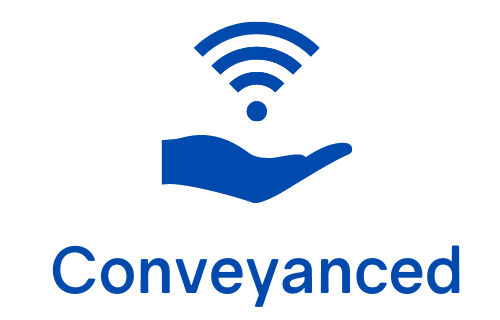As we navigate the ever-evolving digital landscape of 2025, the need for robust cybersecurity measures has never been more critical. The internet may have become an essential part of our daily lives, but it's also a breeding ground for sophisticated threats waiting to compromise your personal data, financial information, and digital identity. Proper antivirus protection isn't optional anymore—it's absolutely essential.
The Importance of Antivirus Protection in 2025
In this day and age, surfing the web without antivirus protection is like wandering through a dodgy neighbourhood with your valuables on display. Cybersecurity has become a fundamental necessity rather than a luxury, especially as threats continue to evolve in complexity and scale. The digital realm we navigate daily is teeming with risks that can compromise everything from your personal photos to your banking details.
Modern cyber threats: what you're up against
The cybersecurity landscape of 2025 presents a diverse array of threats that go well beyond the traditional computer viruses of yesteryear. Today, malware, ransomware, phishing attempts, and zero-day exploits represent just the tip of the iceberg. Cybercriminals are constantly refining their techniques, developing more sophisticated methods to bypass security measures and exploit vulnerabilities in your digital devices. These modern threats can lurk silently on your system, harvesting data or preparing for more damaging attacks without triggering obvious warning signs.
Basic vs. Comprehensive Protection: What's at Stake
Understanding the distinction between basic and comprehensive protection is crucial when evaluating antivirus solutions. Basic protection typically covers standard virus scanning and malware detection, which might seem adequate for casual internet users. However, comprehensive security extends to include protection against ransomware, phishing attempts, unsafe websites, and even privacy concerns. Without robust protection, you risk not only losing access to your files but also exposing sensitive information that could lead to identity theft or financial fraud. The stakes are high, and the choice of security solution can make all the difference in safeguarding your digital life.
Top 5 free antivirus solutions: the familiar names
When it comes to free antivirus protection, several established brands have maintained their reputation for providing reliable security without the price tag. These familiar names have evolved their offerings to address contemporary threats while remaining accessible to users seeking cost-effective protection. Let's examine how these industry veterans stack up in the current cybersecurity landscape.
Windows defender: microsoft's built-in solution
Windows Security, formerly known as Windows Defender, has undergone a remarkable transformation over the years. Once considered a bare-minimum protection option, Microsoft's built-in security solution for Windows 10 and 11 now offers protection that rivals many third-party alternatives. According to recent evaluations, Windows Defender has earned top scores from independent testing organisations like AV-Test, demonstrating its effectiveness against current threats. The integration with Windows provides seamless operation without additional installation or configuration, making it an excellent starting point for basic security needs. Its real-time protection continuously monitors for malware, viruses, and other potential security issues without bogging down system performance.
Avast, bitdefender, avira and avg: how they stack up
Avast One Basic continues to be a popular choice, offering smart scanning capabilities and good basic protection with a relatively intuitive interface. However, users should be prepared for frequent pop-ups encouraging upgrades to premium versions. Bitdefender Antivirus Free focuses on delivering powerful virus and malware scanning, including protection against web threats, and has consistently received very high ratings from independent security organisations. The free version does limit VPN usage to 200MB, which may be insufficient for regular users. Avira Free Security provides a more comprehensive package including antivirus, a basic password manager, and a file shredder along with 500MB monthly VPN usage, though it lacks some web and email threat protection features. AVG AntiVirus FREE, part of the Avast family, was recognised as a Top-Rated Product in both 2019 and 2020 by AV-Comparatives, offering similar protection levels to its parent company's solutions with a straightforward user interface.
The next generation: 5 more free antivirus tools
 Beyond the established names in cybersecurity, a new wave of free antivirus solutions is emerging to address evolving threats. These newer offerings often bring fresh approaches to security, innovative features, or specialised protection that differentiates them from traditional options. As the cybersecurity landscape continues to evolve, these solutions represent the next generation of digital protection.
Beyond the established names in cybersecurity, a new wave of free antivirus solutions is emerging to address evolving threats. These newer offerings often bring fresh approaches to security, innovative features, or specialised protection that differentiates them from traditional options. As the cybersecurity landscape continues to evolve, these solutions represent the next generation of digital protection.
Emerging Players in the Cybersecurity Space
The cybersecurity market is witnessing the rise of innovative competitors challenging the dominance of established brands. Kaspersky Security Cloud Free stands out as a formidable option, having ranked as a Top-Rated Product of 2019 in the AV-Comparatives roundup and earning the title of 2020 Product of the Year. ZoneAlarm Free Antivirus offers daily updates to ensure protection against the latest threats, providing users with consistently current security measures. Other emerging solutions like Sophos Home Free, TotalAV Free Antivirus, and Panda Dome Free are gaining traction by offering unique approaches to security that balance effectiveness with user-friendly interfaces. These newer players often benefit from agility and innovative thinking, allowing them to respond quickly to emerging threat patterns and security challenges.
Specialised protection features for specific threats
What sets many next-generation antivirus tools apart is their focus on specialised protection features targeting specific modern threats. Some excel at detecting and preventing ransomware attacks, which have become increasingly prevalent and damaging. Others focus on advanced phishing protection, helping users avoid sophisticated social engineering attempts that traditional filters might miss. Privacy-focused features are also becoming more common, with tools offering browser privacy enhancements, IP address protection, and limited VPN capabilities even in free versions. As specific threats like identity theft and digital scams continue to evolve, these specialised protections represent valuable additions to standard antivirus capabilities, offering more targeted defence against the most pressing security concerns.
Making the Right Choice for Your Digital Safety
Selecting the optimal antivirus solution requires careful consideration of your specific needs, usage patterns, and the devices you wish to protect. While free options provide valuable baseline protection, understanding their limitations compared to paid alternatives is essential for making an informed decision about your digital safety strategy.
Free vs. Paid: Understanding the Trade-offs
When comparing free and paid antivirus solutions, it's important to recognise what you might be missing with no-cost options. Free versions typically provide basic virus and malware protection but often lack critical features like comprehensive email protection, dedicated ransomware defence, sandboxed environments for testing suspicious files, enhanced firewalls, and webcam monitoring. Premium versions generally include more robust privacy tools such as password managers, identity monitoring services, and unlimited VPN access. Another significant difference lies in support services—free versions rarely offer priority customer support, which can be crucial during active security incidents. While free antivirus software provides essential protection, users handling sensitive information or requiring more comprehensive security might find the investment in a paid solution worthwhile for the additional peace of mind and protection layers.
Cross-platform compatibility and mobile protection
In our interconnected digital ecosystem, comprehensive security requires protection across all devices and platforms. Most leading antivirus providers now offer solutions compatible with Windows and Mac systems, but coverage for mobile platforms varies significantly. Android devices, being more vulnerable to malware, typically receive more robust protection options compared to iOS devices, which benefit from Apple's more closed ecosystem. When selecting an antivirus solution, consider whether you need unified protection across multiple devices and platforms. Some free solutions limit protection to a single device, while others offer basic protection across platforms. For households with diverse devices—computers, tablets, and smartphones running different operating systems—finding a solution that provides consistent protection across all platforms can simplify security management and ensure no device becomes the weak link in your digital security chain.
Using a free antivirus program represents a sensible first step in protecting your digital life against the multitude of threats lurking online. While no security solution offers absolute protection, implementing even basic antivirus protection significantly reduces your vulnerability to common threats. Consider your specific circumstances—the sensitivity of the data you handle, your browsing habits, and your risk tolerance—when choosing among the available options. Remember that regular system scans, keeping your software updated, and practicing good digital hygiene complement your antivirus protection. The landscape of cybersecurity threats continues to evolve, and staying informed about emerging risks and protection strategies remains an essential part of maintaining your digital safety in 2025 and beyond.



